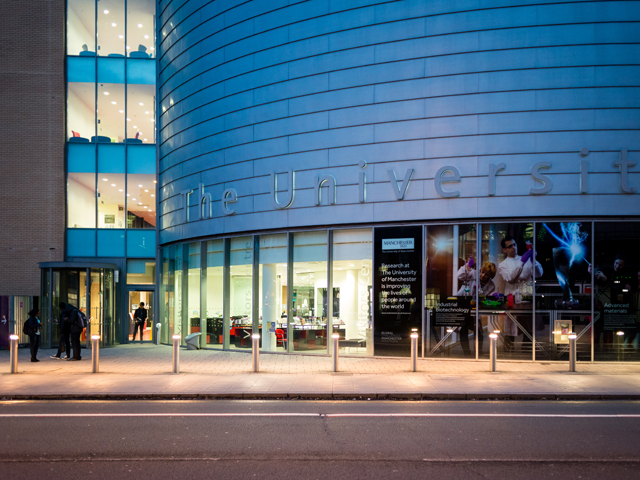
Find out more about the Arthur Lewis Assignment
This blog will discuss the Arthur Lewis assignment, the pre-university course offered and taught by the School of Social Sciences at the University of Manchester. Named after Sir Arthur Lewis, the UK’s first black lecturer, it is a distanced learning online course that aims to give you an idea of what the social sciences experience is like at the University of Manchester. We talked to the person running the scheme for more insight into the actual programme and to an economist at the University of Manchester to learn more about the legacy and importance of Arthur Lewis.
Who can participate in the Arthur Lewis Assignment?
All home students that hold an offer from the school of social sciences for an undergraduate programme and are currently living in a neighbourhood with low progression to higher education or high levels of deprivation (if this is the case your application would be ‘WP’ flagged) are eligible to take part in the scheme. However, you may not be eligible if you are a MAP student or in a Law course, or in any of the face-to-face pre-university courses. Please note that these are only for the 2022/2023 admissions cycle and our criteria and data may change from year to year.
What is the Arthur Lewis Assignment?
We asked Sam, who is running the scheme this year along with a social science academic, to explain what the scheme involves.
“Students complete two ‘exercises’, a multiple-choice test and an essay. During the academic assignment you will be given some academic reading, very similar to what you might encounter at university, and have to write your essay on it.”
These are both based on a short piece of work that students are given to read in development studies, which looks at economic and philosophical content similar to what you might see in some university modules such as Development Economics or Politics of Development.
“This piece of work is then sent to an academic to be graded and if you pass, you will be eligible for a one grade reduction if the University of Manchester is your first choice. You will be emailed the work you need to do starting February and the deadline is usually at the end of April.”
As a former social sciences student, myself, I can say that this is quite similar to what academic life has in store for you at university. Some classes, such as Economics for example, will assess your knowledge with multiple choice tests, while others like Politics or Philosophy will often ask you to write up essays. These can sometimes be daunting and take time to figure out what works for you and how to achieve it. As such, this scheme essentially gives you the opportunity to participate in university-style teaching and learning and get a taste of writing university-level academic work, before you even start your university journey.
Who was Arthur Lewis?
Considering the legacy of the programme, we asked Dr Edward Manderson, economist and lecturer at the university, his thoughts on the importance of Arthur Lewis as a role model and figurehead in the field.
“He [Arthur Lewis] remains to this day the only black person to have won the Nobel Prize in economics. His pioneering work contributed to the emergence of development economics, an important field within economics. Basically, he was looking at how poor countries can achieve higher levels of production and income.”
In fact, Arthur Lewis acknowledged that it was his experience and interactions with BAME students while lecturing at Manchester that inspired him to get into the field of development economics:
“it was the throng of Asian and African students at Manchester that set me lecturing systematically on development economics from about 1950.” – Sir Arthur Lewis.
For those interested in development theories and economics, we asked Dr Manderson to provide an overview Lewis’ work:
“Arthur Lewis’ work involved establishing that in poor countries there is a dual economy at work: a modern sector consisting of capitalist industries and farms that aim to make a profit, and a traditional (or subsistence sector) that does not profit maximise.
The traditional sector might involve families working for themselves and sharing any proceeds among relatives and friends. The traditional sector accounts for most economic activity in poor countries but is relatively unproductive. Each additional worker contributes little to production. In a sense, there is an excess (or “unlimited”) supply of labour in the traditional sector. Lewis’ model suggests that poor countries can develop and get richer when the modern sector expands and the traditional sector shrinks.
The modern sector has access to a large supply of low wage labour in the traditional sector. Labour might need to move from rural areas work into factories. The profits made in the modern sector can be reinvested in factories and machines, increasing output and productivity. Government policies would be needed to help achieve this as markets would not necessarily work well in developing countries.”
In the end, Arthur Lewis left an impressive legacy at the University of Manchester, not only in terms of his academic success and winning the Nobel Prize, but also his work in the local community supporting the education of the local Afro-Caribbean population. The Social Sciences building at the University is named the Arthur Lewis building and there is an annual Arthur Lewis lecture where important social issues and events are highlighted and discussed in detail by professionals in the field.






0 Comments